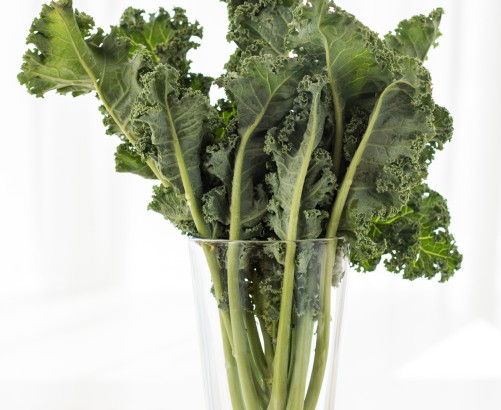Kale: Is it good - or bad - for you?
This hyper nutrient-rich vegetable is considered a super food. But for some, it would be dangerous to consume regularly. True or hoax?
In recent weeks, media has been in frenzy, particularly in the United States, about the supposed dangers of regular consumption of kale. This cruciferous vegetable (from the same family as cabbage, lettuce and broccoli) is very rich in vitamins, calcium, magnesium and potassium, and popular with hipsters and coaches for its nutritional detox and re-mineralizing properties. Moreover, it is now the main ingredient in many foodsespecially salads, smoothies, green juices, and even chips. But kale also has its detractors. According to a research by Craftsmanship magazine, regular consumption of this green vegetable could be the cause of various ailments such as chronic fatigue, hair loss, digestive disorders and in some cases, hypersensitivity to gluten. In question, thallium, a metal found in soils, is usually absorbed by kale and gradually poisons the body of consumers. So, is it a danger or not?
"EVIDENCE" QUESTIONABLE
The article mentioned above is based on a research of an American molecular biologist, Ernie Hubbard. Problem: his works have been published in several serious medical journals which cast doubt on the methodology used.
And indeed, from the time the kale was 'scientifically' suspected to be causing problems for his patients, he focused on the vegetable, leaving out other potential trouble makers. However, fatigue, digestive disorders or hair loss can be the result of many other pathologies. It is almost impossible to establish a causal link between the consumption of a type of food and such disorders as there are external factors that come into play. At best, we can talk about suspicions, but certainly not proof.
THE PROBLEM IS NOT WITHIN THE KALE
Finally (and this is another troubling point if the kale absorbs heavy metals, especially thallium), it has been debated whether spinach, cabbage and other vegetables from the cruciferous family also pose a danger. This is a track that has never been explored nor detained by the researchers, probably because the amounts absorbed by the plants should be huge for the risk of thallium poisoning to be real.
Still, if this 'study' remains largely controversial, it has the merit and highlight one of the real challenges of agriculture for the future: soil pollution.
Maureen Diament and Nur Syazana H.




